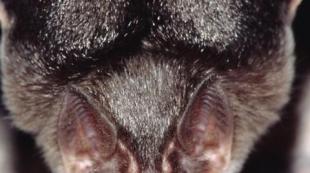Suffixes with nn. A13
The lesson is conducted according to the textbook for the 6th grade of educational institutions, Moscow "Enlightenment". Textbook authors: M.T. Baranov, T.A. Ladyzhenskaya, L.A. Trostentsova, L.T. Grigoryan, I.I. Kulibaba.
A slide show of a computer presentation helps in conducting the lesson ( Attachment 1).
1 slide (on click) .
Lesson topic:"One and two letters n in adjective suffixes.
Lesson Objectives:
- Introduce students to one and two letters n in adjective suffixes.
- Learn how to write adjectives with one and two letters n .
- Reason, verbally and in writing explain the conditions for choosing one and two letters n in adjective suffixes.
During the classes
1. Organizing time.
2. We continue to get acquainted with the suffixal way of forming words.
- Form adjectives from nouns: sleep, station, straw, duck, sand, oil, highlight word-forming suffixes.
- Why do you think some adjectives have only one letter? n , while in others there are two n ?
(The guys are trying to derive a rule for writing n-nn in adjective suffixes.)
2nd slide (on click) .

3. Then I invite the guys to get acquainted with the algorithm. The main thing in working on the algorithm is to convince students to be patient and not to miss anything, to get used to the sequence of actions. Students write in notebooks in the course of the explanation in which suffixes it is written n -nn .
3rd slide (on click) .

4. Guys, we have examined the spelling n-nn in suffixes of full adjectives. And how much n written in suffixes of short adjectives?
Students will learn that the short form is like the long form: tse nn th thing - tse nn ah, the wind n the weather is windy n but.
I draw the attention of the guys to the spelling of words windy - windy. The spelling of these words depends on the meaning. Along the way, I introduce other such words:
oily - oily, salty - salty.
We carry out exercise 319 according to the textbook on page 128.
Determine which vowels in suffixes need to be written in the following cases:
windy ..naya (weather), windy ..nye (days), windy ... noe (morning), windy ..naya (person), windy ..ny (young man), windy ..naya (mill), wind .. noah (engine).
4 slide (on click) .

5. Acquaintance with spelling No. 38 from the textbook p. 127.
6. The spelling of the following words must be remembered:
green, blue, crimson, spicy, pig, young, mutton, pheasant, ruddy, seals, peacock.
They have a letter n is part of the root, so one word is written in words n .
(Students write these words in their notebooks.)
5 slide (on click) .

7. Write the suggested words from exercise 321 in two columns with one n and with two n in adjective suffixes.
Revolutionary, aquiline, enthusiastic, oatmeal, woolen, dinner, pewter, leather, wood, animal, peat, sightseeing, writing, glass, aviation, sandy, bone, ordinary.
Explain the spelling of the missing letters using the algorithm.
6 slide (on click) .

8. Explain the spelling of the missing letters.
(We write down only words in which letters are missing.)
7 slide (on click) .

9. The last stage of the lesson is consolidation. I offer the guys the test "Test yourself" - a control and training task in writing, which is characterized by the speed of the execution procedure and the accuracy of the assessment of the result and allows you to identify the level of assimilation of the rules.
At this stage of the lesson, students act independently. Independent work at the stage of primary consolidation is checked immediately after its completion. The most effective technique, in my opinion, is self-examination or mutual examination on the proposed answer to the test.
Such work contributes to the development of spelling vigilance, which allows you to see how the word is written. After checking, students, having made mistakes, explain the algorithm of spelling actions with this word.
- Understand the algorithm in writing words in which mistakes are made.
A cast-iron grate, a windy day, crimson sunsets, crow's feet, an engine room, a painful feeling, a strange occurrence, an old clock, a young face, an ice mountain, a canvas bag, cockfights, a tin box, a life drama, a stately column, a swan song.
- Rate yourself: "5" - for 16 correct answers, "4" - for 13-15, "3" - for 9-12, "2" - for 6-8.
8 slide (on click) .

10. Summarizing.
11. Homework: paragraph 56, ex. 320. For these nouns, select one-root adjectives with suffixes - n -, -en -(-yang -) or - enn -.
E.A. Makovey, teacher of the Russian language, secondary school No. 1 in Adygeysk,
A.I. Arkhipova, Professor of the Kuban State University
§ 3. Spelling of suffixes
Suffix - lat. suffixus - "attached"; literally: "substituted to the root" - a significant part of the word, which usually serves to form words.
3.1. Spelling n-nn in suffixes different parts speeches
3.1.1. Н and НН in adjectives formed from nouns
Choice H or HH in adjectives formed from nouns, it is determined by which word and with the help of which suffix the given adjective was formed.
Rat..th poison; living room; remarkable .. th nature.
Find out what noun the word is derived from
|
Write HH |
Write N |
|
If one H is in the stem of a noun, and the second H is an adjective suffix: |
If you have a suffix -IN-:
|
|
If you have suffixes in front of you -ENN- / -ONN-:
|
If you have suffixes in front of you -AN- / -YAN-:
|
The rule also applies to short adjectives (the road ShowPicture("image011.gif"); is deserted).
3.1.2. Н and НН in full verbal adjectives and participles
Dried linen; frenzied ..th speed; sold..th product.
In full verbal adjectives and participles HH is spelled under any of the conditions below.
Terms of writing HH:
|
Note! Pay special attention to words with several roots like raw smoked and quick-frozen. By itself, the presence of two roots is not a condition for double N. In order for two Hs to appear in the suffix of such words, one of the conditions noted in the rule must appear. It often happens that in a word there are several conditions for writing NN at once. |
3.1.3. Н and НН in short verbal adjectives and short participles
She is modest and well-mannered..a; she was brought up .. at a boarding school; she is always collected..a and organized..a.
3.1.4. Н and НН in adverbs in -О / -Е and in nouns formed from adjectives and participles
Neftyan..ik; captivity..ik; confused .. about talking; excited..o listened.
All such words are formed from forms ending in -Ы / -OY (from participles or adjectives). The same number of H is written in them as H was in the corresponding form on -NY / -OY.
Hryvnia (from the adjective hryvnia);
He spoke with concern (concerned from the sacrament).
3.2. Spelling of noun suffixes
Most noun suffixes should be memorized. Some suffixes have special spelling rules.
3.2.1. The spelling of these suffixes should be memorized.
3.2.2. Choice -CHIK- / -SHIK-
3.2.3. Choice of suffixes -EK- / -IK-
The choice is made according to the form of the genitive case (there is no WHO? WHAT?).
3.2.4. Choice -EC- / -IC-
3.2.5. Choice -УШК- / -УШК-
3.3. Spelling of adjective suffixes
Most adjective suffixes should be memorized.
Some suffixes have special spelling rules.
3.3.1. The spelling of these adjective suffixes should be memorized.
|
-chat- |
-ist- |
|
membranous |
fleshy |
3.3.2. Choice of suffixes -K- and -SK-
3.3.3. Choice of suffixes -iv-, -ev-
3.4. Spelling of verb suffixes
3.4.1. In the indefinite form of the verb and in the past tense forms, the same verbal suffix is usually written:
hope - hoped;
measure - measured.
When this suffix is in an unstressed position, it should be memorized.
Distinguish verbs to weaken(become powerless yourself) and enervate(someone, something) and others, starting with the prefixes O- + -WITHOUT-/-WITH- ( deforest, deforest; depopulate, depopulate, etc.).
Compare:
Wed forms of the future tense (spelling depends on the conjugation):
to weaken - to weaken, to weaken
to weaken - to weaken, to weaken
For example: The travelers will soon be exhausted. Illness will debilitate anyone.
3.4.2. Choice of -EVA- / -OVA- and -YVA- / -IVA- in verbs
Research..to, advice..to, postpone..to.
Note!
According to a special rule, verbs are written with stress -VA-. The root vowel is usually written before the stressed -BA-,
stress-checked:
sing - sing; give - give.
3.5. Spelling participle suffixes
3.5.1. Spelling of suffixes of real participles of the present tense
Slumbering nature; believing in himself; creeping shrub.
3.5.2. Spelling of suffixes of passive participles of the present tense
Inaudible .. my; opening..my; drawing..my.
3.5.3. Spelling of the vowel before -В- / -ВШ- in suffixes of real past participles
Rasta..gone; believed .. who; sowed..
3.5.4. Spelling of the vowel before Н/НН in passive past participle suffixes
Exhausted..ny; dyed; crowned..ny.
3.6. Spelling of suffixes of participles
Zate..in; believe..in; outposts..in.
In perfective gerunds, the same vowel is written as in the suffix of the indefinite form of the corresponding verb.
See - seeing;
Listen - listening.
3.7. Spelling of suffixes -A and -O in adverbs formed from short adjectives
Came bright ..; packed tight..; standing on the left..
The suffix in adverbs formed by the prefix-suffix method from short adjectives can be determined by substituting the word “window” under the appropriate preposition:
long time ago (from the window);
on the right (from the window).
Note!
This rule should not be applied to adverbs formed in a suffixal way from full adjectives: trusting (from trusting), soulless (from soulless), hidden (from hidden). In such adverbs, the adverbial suffix -O is written at the end.
dry
- formed from the short adjective dry with the prefix DO- and the suffix -A (to the window).
Intelligibly
- formed from the full adjective intelligible with the help of the adverbial suffix -О.
Algorithm for working with Н-НН in the word suffix
1. I see a word with H in the suffix before H consonant the letter means, I always write this adjective H (inter fromn th)
2. I see a word with H in the suffix before H vowel I conduct a word-formation analysis of the letter:
3. The word is formed from a noun means it's an adjective isolate the root And apply the rule(for full and short form):
1) suffix –AN-YANG I write with H(made from something: sand en th)
EXCL: tin yann th, trees yann oh, glass yann th
2) suffix –IN-I write with H(always stressed; someone; from an animated noun:
eagle in th)
3) suffix -ENN-ONN I write with HH(morning enn ii)
EXCL: wind en th
4) the root (base) ends with H + H suffix - I write HH (tuma nn oh, old nn th)
4. The word is formed from the verb I define the form
A) full form I apply the rule:
1) there is a dependent word, it means this is a participle - I write HH(crush enn th paint)
2) there is a suffix -OVA-EVA, which means this is a participle - I write HH(rice ovann th)
3) from the verb of the perfect form, it means this participle - I write HH(on crush enn th)
4) from the verb imperfect form so it's an adjective H(crush en th floor)
B) short form define the meaning of the word:
1) direct meaning is short communion- writing H(children sobr en s in class)
2) figurative meaning so this is a short adjective - I write HH(children sobr ann s)
DIFFICULT CASES OF WRITING N - HH
short form
| EXAMPLES | PARTICIPLES (direct meaning, there may be dependent words, can be replaced by a verb) | ADJECTIVES (figurative meaning, qualities of a person) combined with an adverb VERY |
| Full form | H | HH |
| 1.Educated | Educated Educated Educated Educated Educated new commission. | Educated Educated Educated Educated She was smart and educated. |
| 2.Organized | Organized competitions well organized. | Organized Pupils organized, diligent. |
| 3.Excited | Excited Sea excitedly wind. | His speech was excited excited. |
| 4. Scattered | Scattered in the world miracles scattered everywhere. | Absent-minded She was inattentive and distracted. |
| 5.Brought up | Katya was brought up brought up grandmother. | Well-bred Children are smart and brought up. |
| 6.Discreet | Enemy Attack Restrained restrained soldiers. | Restrained Fighters reserved and focused. |
| 7. Focused | Concentrated Troops concentrated in the offensive area. | Focused Students on the exam are attentive and focused. |
| 8.Limited | Limited Brigade limited in time. | Limited Thinking Neighbor limited. |
| 9.Exquisite | Exquisite Resources found directorate. | Exquisite Her manners exquisite. |
| 10. Depressed | The revolt was put down quickly suppressed. | Depressed People were depressed and sad. |
| 11. Considered | Thought out The moves of the game were considered. | Thoughtful Her Behavior thoughtlessly . |
| 12. Confident | Confident Athletes sure in victory. | Confident Movement unsure and awkward. |
| 13.Assembled | A lot of potatoes have been harvested in the fields. | The fighters are collected and attentive. |
| 14. Spoiled | Grandchildren are spoiled by their grandmother. | Spoiled grandchildren are rude. |
| 15. Sublime | Exalted Molchaliny exalted in the world. | Exalted Aspirations lofty, are clean. |
| 16. Well-read | Read Lectures well-read professor. | Well-read Friends well-read and cultural. |
| 17. Tangled | Tangled Traces confused hare. | Tangled Relationship confused strange. |
| 18. Exhausted | Exhausted Babes exhausted expensive. | Exhausted The views of the prisoners exhausted And |
| 19. Hounded | Hounded On the hunt hunted down a fox. | hunted down. Hounded. |
| 20. Launched | Rocket launched launched to space. | Launched Alley neglected, unorganized. |
| Soulful Risky Arrogant | - - - | The speeches are poignant and sincere. The trip to the mountains was risky. Madam is very arrogant. |
adjectives
remember spelling
| vocabulary words | depend on the value | ||
| H | HH | from nouns | from verbs |
| 1. windy (excl.) 2. vigorous (excl.) 3. written gorgeous 4. named brother (BUT! called by name) 5. Forgiveness Sunday 6. living room - hotel 7. planted father (BUT! A planted tree) 8.dowry brides 9. sister-in-law 10. finished man (BUT! Finished business) 11. sanguine 12. silver 13. twisted guy 14. omshanik ( for bees) 15. smart 16. hard worker PRIMARY 1. crimson 2. buckskin 3. black 4. single 5. green 6. spicy 7. drunken 8. rye 9. ruddy 10. zealous 11. pig 12. blue 13. young POSSESSIVE 1. mutton 2. peacock 3. carp 4. seal 5. pheasant 6. monkey BUT! monkey house | 1. slow 2. desired 3. cutesy 4. sacred 5. unexpected 6. unexpected unexpected 7. unseen seen 8. unheard heard 9. unexpected 10. given 11. pecked 12. promised 13. desperate 14. dowry 15. protege 16. done 17. cursed 18. alert 19. twitchy human 20.attorney in business 21. teetotaler 22. swaggered (swagger = pride) 23. chased (chased = ax) 24. counted 25. erased 26. read 27. stirrups 28. homegrown BUT! Erased-re-erased Read-re-read!! unexpected - unexpected | WIND Windy day Windy man Without (under) windy BUT! wind turbine | |
| OIL oil (for oil on oil from oil) oil stain oil paint | BUTTER Buttered (soiled soaked greased) buttered pancake, porridge | ||
| SALT saline solution | SALT salted fish | ||
| SILVER silver ring | SILVER silver copper | ||
| RESIN torch | tar tar boat |
ATTENTION!
Honored e n (from honor it)
Dosto And n (from worth th ny) -
Dosto And nstvo.
Udli n e nn th (- udli n it - length n but)
The topic of the Russian language "Spelling "n" and "nn" in adjectives" is familiar to every student. However, after graduating from a general education institution, many people begin to forget the most simple rules and make a large number of mistakes during the creation of any text. In this regard, we decided to remind you of the cases in which the suffixes "n" and "nn" are written in adjectives. Also, some exceptions to the existing rules will be presented to your attention. They should be remembered.
Part of speech definition
They call the significant, which denotes a non-procedural feature of the subject, and also acts in the sentence as a definition or nominal part of the predicate and answers the following questions: “what?”, “what?”, “what?”, And also “whose?” and what?".
general information
"The spelling of 'n' and 'nn' in adjectives" is a very important topic in Russian. Indeed, without knowledge of such simple rules, it is quite difficult to compose a competent text or even a letter.
It should be especially noted that adjectives can be formed both from nouns and from verbs. Knowing these basics will allow you to better understand how many letters "n" you need to write in a particular case.
Spelling "n" and "nn" in adjectives derived from nouns
So, let's figure it out together, in what cases should you put -nn-:

Which adjectives that are derived from nouns use "n"?
Now you know in which cases the suffixes -nn- are written in adjectives (-onn-, -enn-, etc.), if they are formed from nouns. However, this is not enough for a competent drafting of the text. In this regard, it is necessary to consider the spelling rules for the suffixes -in-, -yan- and -an-:
- In adjectives that are derived from nouns using the above suffixes, only 1 letter "n" is always written. Let's give an example: leather (leather), sparrow (sparrow), clay (clay), pigeon (dove), waxed (wax), crane (crane), wood (firewood), nightingale (nightingale), etc. However, all rules have your exceptions. In this case, these are the words "glass", "wood" and "tin". 2 letters "nn" are written in them, and they should be remembered.
- In the names of adjectives that are formed without the use of any suffixes. Let's take an example: green (green). It is also necessary to remember the following words: spicy, ruddy, pig, young and united.

How many letters "n" are written in the names of adjectives that are derived from adjectives?
2 letters "n" are written if adjectives are formed from adjectives by adding the suffix -enn-, which indicates a large measure of any feature. Let's give an example: hefty, tall or wide.
Important notes regarding the rules described
The spelling "n" and "nn" in adjectives has the following features:

Spelling "nn" in adjectives and participles derived from verbs
So, 2 letters "n" should be written if:
- Adjectives are formed from verbs with prefixes. Moreover, the prefix non-almost never affects the spelling of "n" or "nn". Thus, in the adjective with, one should not write the same number of letters “n” as in the adjective without this prefix. Let's give an example: (connected, beveled, built).
- If there are suffixes such as -eva- or -ova-. Here is an example: an organized excursion, uprooted forest, etc.). Exceptions are the following words: chewed And forged. In this case, ov- and ev- are included in the root, and are not suffixes.
- If the sentence contains any dependent word (for example, woven from twigs).
- If the adjective is formed from a verb that has a perfect form (for example, solved). The exception is the word "wounded".
Spelling "n" in adjectives derived from verbs
One letter "n" is written in adjectives that are derived from verbs without the use of prefixes. Let's give an example: uncut, knitted. Exceptions are the following words: sacred, slow, unprecedented, unexpected, desired, unheard of, unexpected and unexpected.

Letters "n", "nn" in short adjectives
In addition to the full names of adjectives, there are also short forms in Russian. To understand how "n" and "nn" are written in short adjectives, you should remember the rules about full ones. After all, they are the same for both forms.
Here's an example:

Important notes on the material covered
To finally figure out how to write adjectives (with "n" or "nn"), you need to consider the following features:
1. Usually the suffixes -yang- and -an- give the meaning "intended for something" or "made from certain material". For example: wood, clothes; sandy, clay.
2. In order to correctly compose a text, one should distinguish between adjectives whose spelling is related to their meaning.
Windy, that is, "with the wind" (windy weather). Windmill, that is, “driven by the power of the wind” (wind pump). In the phrase "chicken pox" the adjective is written 1 letter "n". This is due to the fact that this word comes from "windmill".
Buttered, that is, “soaked in oil” (buttered porridge). Oily, that is, "flattering" (oily voice). Butter, that is, “diluted in butter” (butter cookies).

Silver, that is, "subjected to silvering" (silver device). Silver, that is, "made of silver" (silver bottle).
Salty, that is, "containing salt" (salted fish). Salt, that is, "consisting of salt" (salt column).
First you need to understand what form is an adjective:
Then you need to find out what part of speech the word is formed from noun or from verb.
| Full form | |||
| I. Adjectives from nouns | II. Adjectives from verbs (participles) | ||
| -N- | -HH- | -N- | -HH- |
| -an, -yan, -in lion - lion ! Glass |
1. -onn, -enn revolution - revolutionary ! Windy 2. H+H = sleepy+ny BUT! The words also belong to the primitives: single, pheasant, raven, ram, carp, seals, peacock, crimson, zealous, bulany. 3. MY = enn temporary (time) |
1. without prefix frozen catfish (from freeze) not
frozen |
1. with prefix behind frozen catfish 2. dependent word frozen mom catfish 3. suf. ova, eva, irova marinated ! forged, chewed, pecked ! desired, unexpected, unexpected, unexpected |
| short form | |||
| 1. The meaning of the action (what is done?) - "N" raised by a father, excited by the storm |
2. The meaning of the sign (what are they?) - see the full form: how many "n" in the full, so much in the short. They brought up nn s and education nn s (educated and educated). |
||
Tasks and tests on the topic "Spelling "n" and "nn" in adjectives and participles"
- Spelling participles - Communion Grade 7
Lessons: 3 Assignments: 12 Tests: 1
- Spelling participles, participial turnover
Lessons: 4 Assignments: 11 Tests: 2
- Spelling of adjectives - Adjective 6th grade
Lessons: 5 Assignments: 10 Tests: 1
- adjective as a part of speech - Morphology. Independent parts of speech Grade 10









